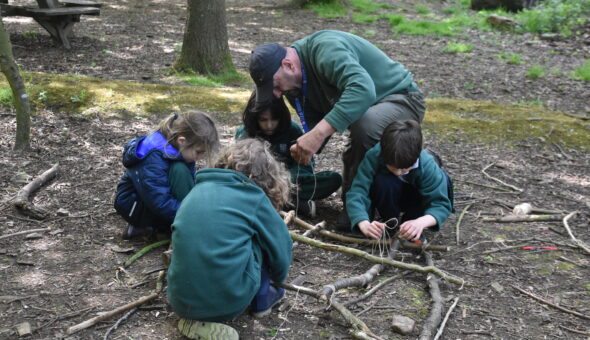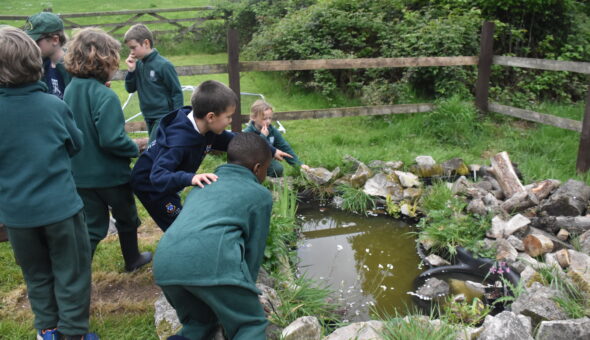Focus on: Forest School at Clifton College
We recently caught up with our very own Forest School Coordinator, Mr Cox, to hear all about his passion for nature and how he came to teach all things outdoors at Clifton College.

What do you most enjoy about teaching at Forest School?
There’s nothing I don’t enjoy! I love being outdoors and sharing my knowledge with children, even if they pick up the smallest snippet of information from one of my sessions, I believe their inquisitive nature will set in and they will continue to take an active interest in their environment. It is so nice to see the smiles on children’s faces and their excitement building as they get on the bus to make the journey over. All the children love coming to Forest School, and it is an honour to relay my knowledge to them and to hear how they have absorbed it and incorporated it as they move through the school.
What subject did you most enjoy at school?
I was really inspired by a teacher at school who took a class called rural studies. This involved going out into the school garden and digging it up, along with feeding the school donkeys, this sparked my interest in nature and is ultimately what led me to working at Forest School in Clifton College. I believe the government are thinking about bringing a Natural History subject into the curriculum. This subject is really important; it is just as important as our social history, and history through time, it is key to how children are going to progress, and how they are going to look at our environment and how our planet works. We need to make children appreciate what we currently have, and how to manage it to make it even better. Forest school in early years is where we need to start, as children move up through the school, it sets a foundation of interest in recycling and other important areas vital to keeping our planet healthy.

What do you find most satisfying about your job?
I love hearing parent’s feedback about Forest School, mainly relayed from their children’s experiences. Parents tell me that it’s made their children more confident by getting outside and socialising with other children and that to me is so satisfying. Children in the older years often come up to me and tell me that they miss their sessions at Forest School, and that tells me that I have made a lasting impression which is very rewarding.
What are you most proud of professionally?
We utilise the natural environment and upcycle everything in Forest School, and that is how the world should work. We want to show the children that we do not need to go out and buy things. At Forest School you do not need to buy anything, you can make a swing or a climbing frame, it is all there, and nature provides everything for us. Our sessions are all child-led, although we are here as practitioners, we are not directing the children, children will do things in their own way from their own imaginations and we can learn so much from them. Children can, and do, teach me a lot, and it is lovely to work with so many age groups to see all those different ideas come to life.

Describe your typical day
I arrive to Forest School at 7am and the first job I do is to walk around and do a risk assessment to make sure our site is safe. I set up for the morning activity for the Preschool group, and most importantly make the hot chocolate and gather the biscuits! I then drive over to school to help get the children ready to board the bus to take them on the two and a half mile journey to Forest School, which is all part of the experience, going across the Clifton Suspension Bridge is quite exciting. When the children first arrive, we sit at base camp and discuss the rules of Forest School and what we will be doing for our session that day, ranging from kings and castles, Percy the Park Keeper, making music with natural resources and many, many more topics. After lunch, I set up for the afternoon session and go to pick up the second group of children in the bus. I also run Forest School club in the evening on a Tuesday, and on the weekends I run an enrichment programme for Year 7 and Year 8, where we do more advanced bush craft activities such as making fires and safely handling knives to use in the natural environment.
How important is Forest School?
I think Forest School should be essential for most schools, you don’t need a forest to do what we call ‘outdoor learning’, it is just based on a natural background, however you choose to deliver it. We are very lucky at Clifton College that we have such an amazing outdoor area. Even if we bring 1000 children to forest school, we only need one percent of those children to go on and take an active interest in the natural environment. If that could be replicated across the country, there would be so many children that would be interested in nature and the world around them and inspire the continuation of Forest School for years to come.
